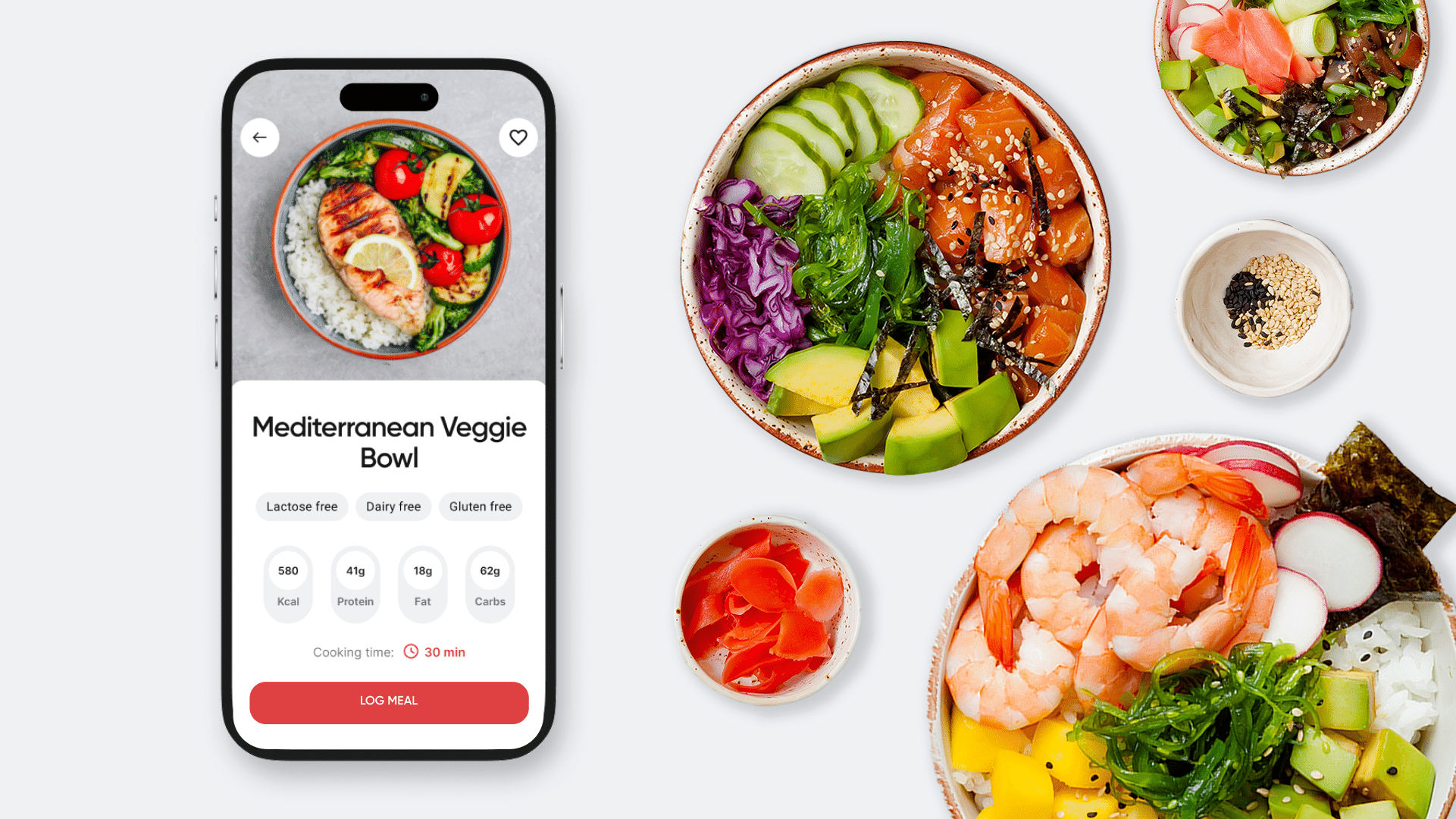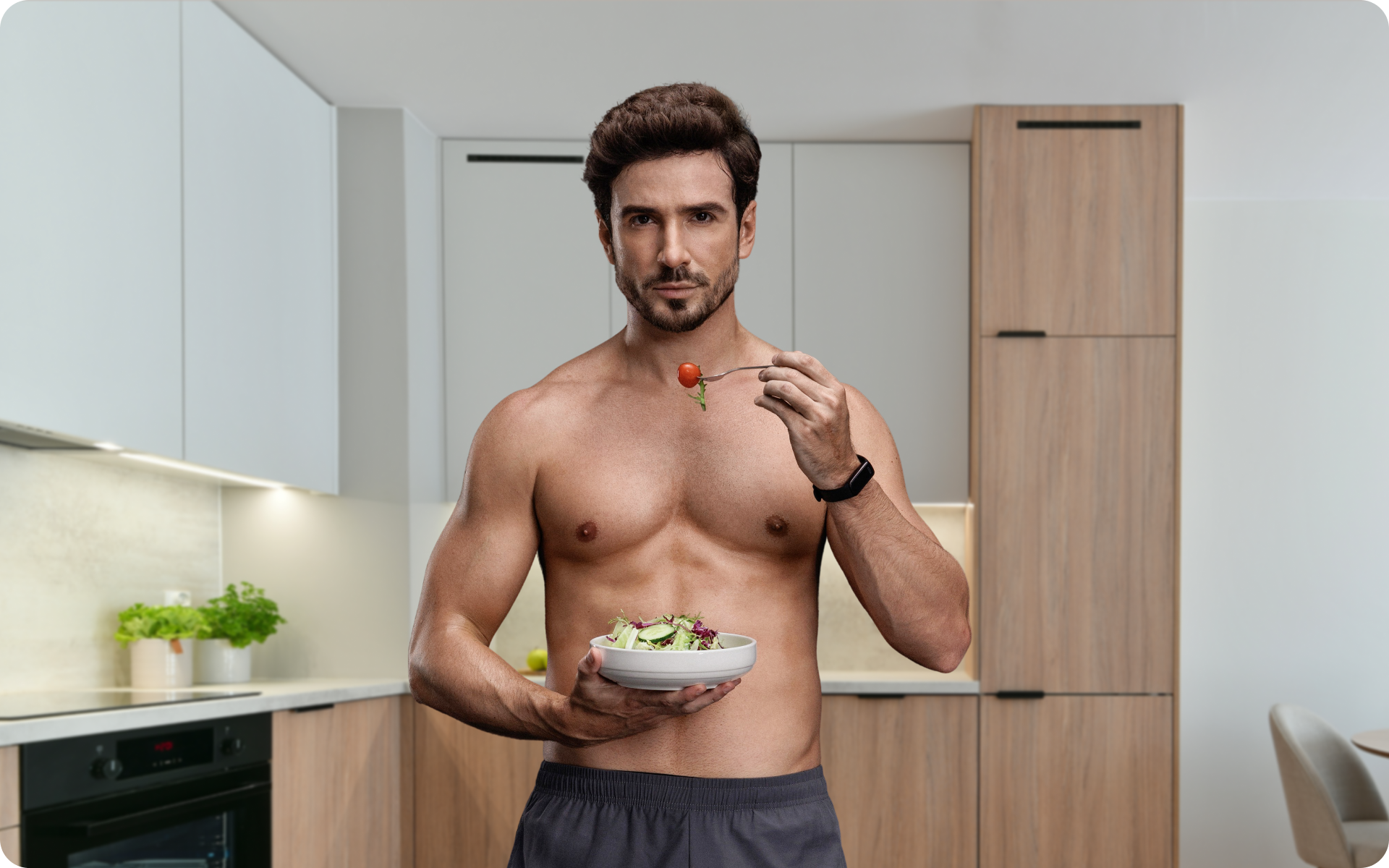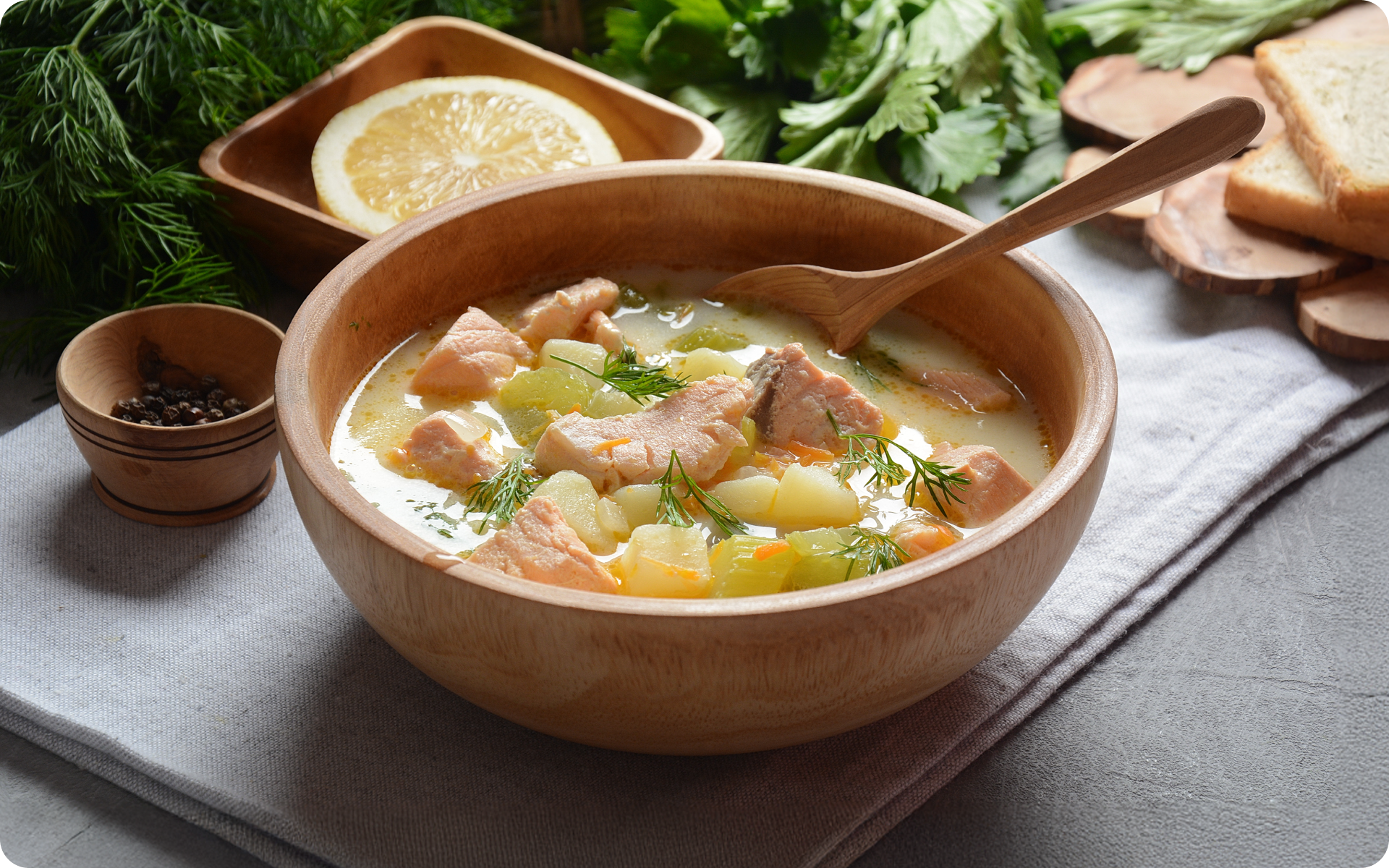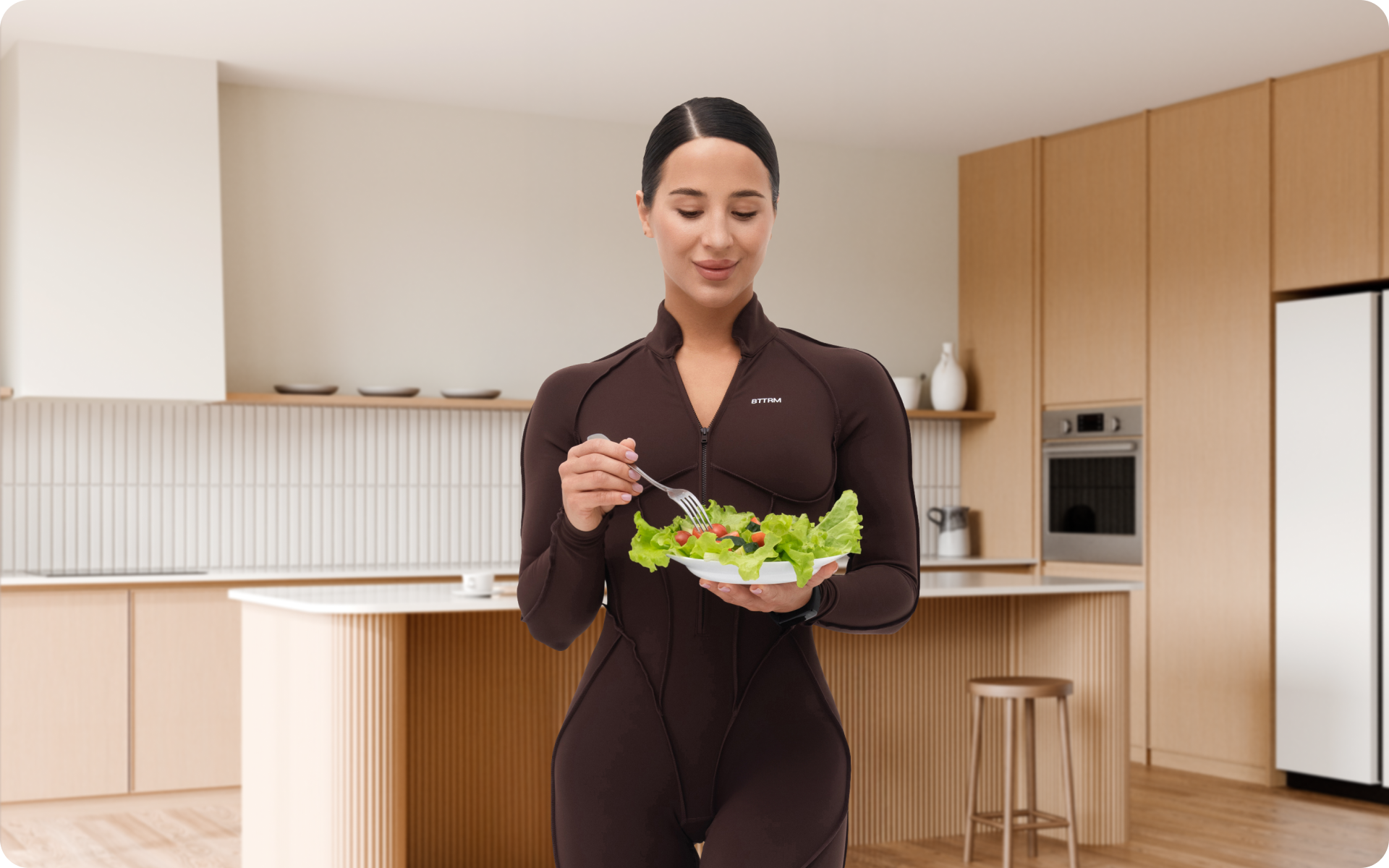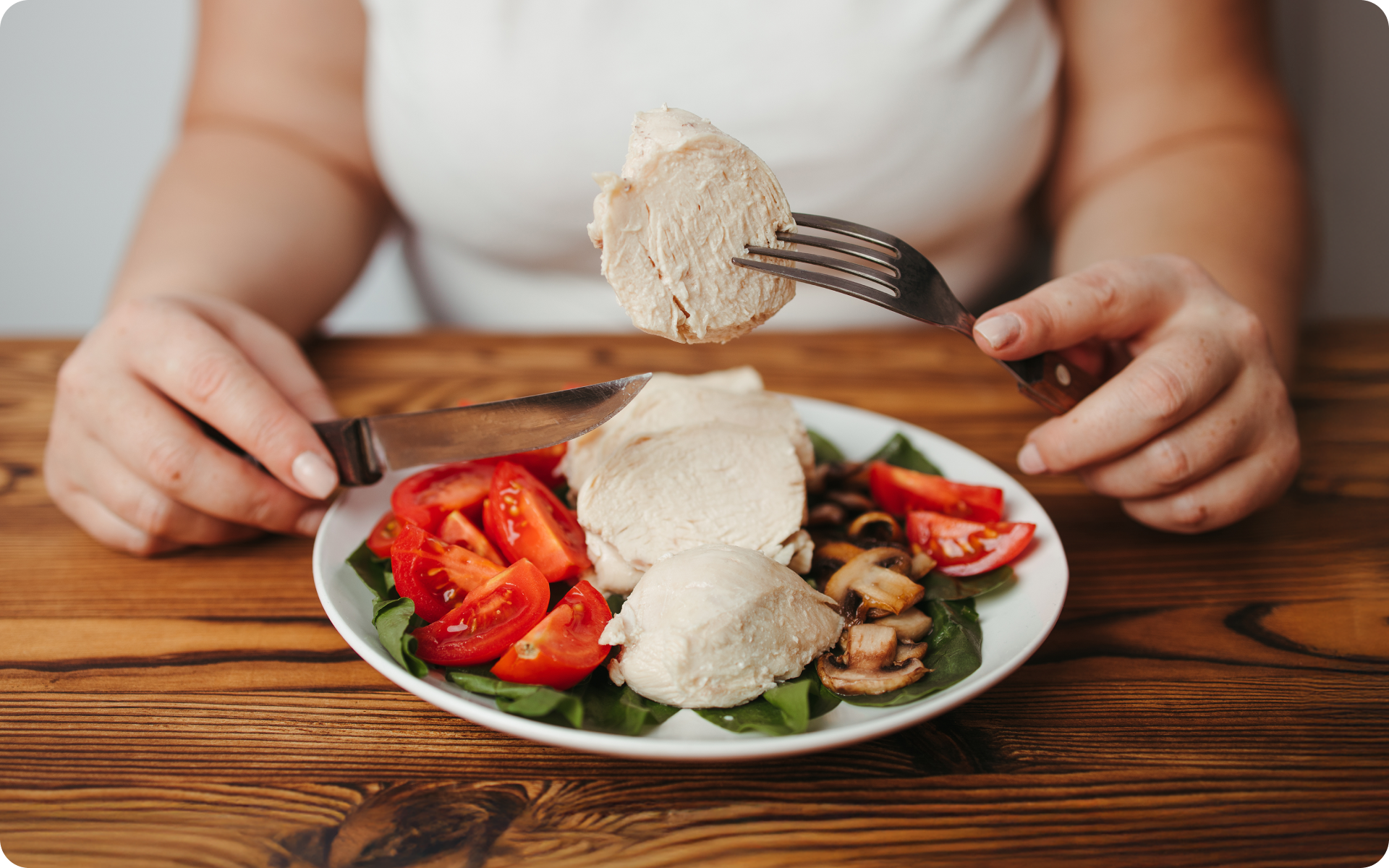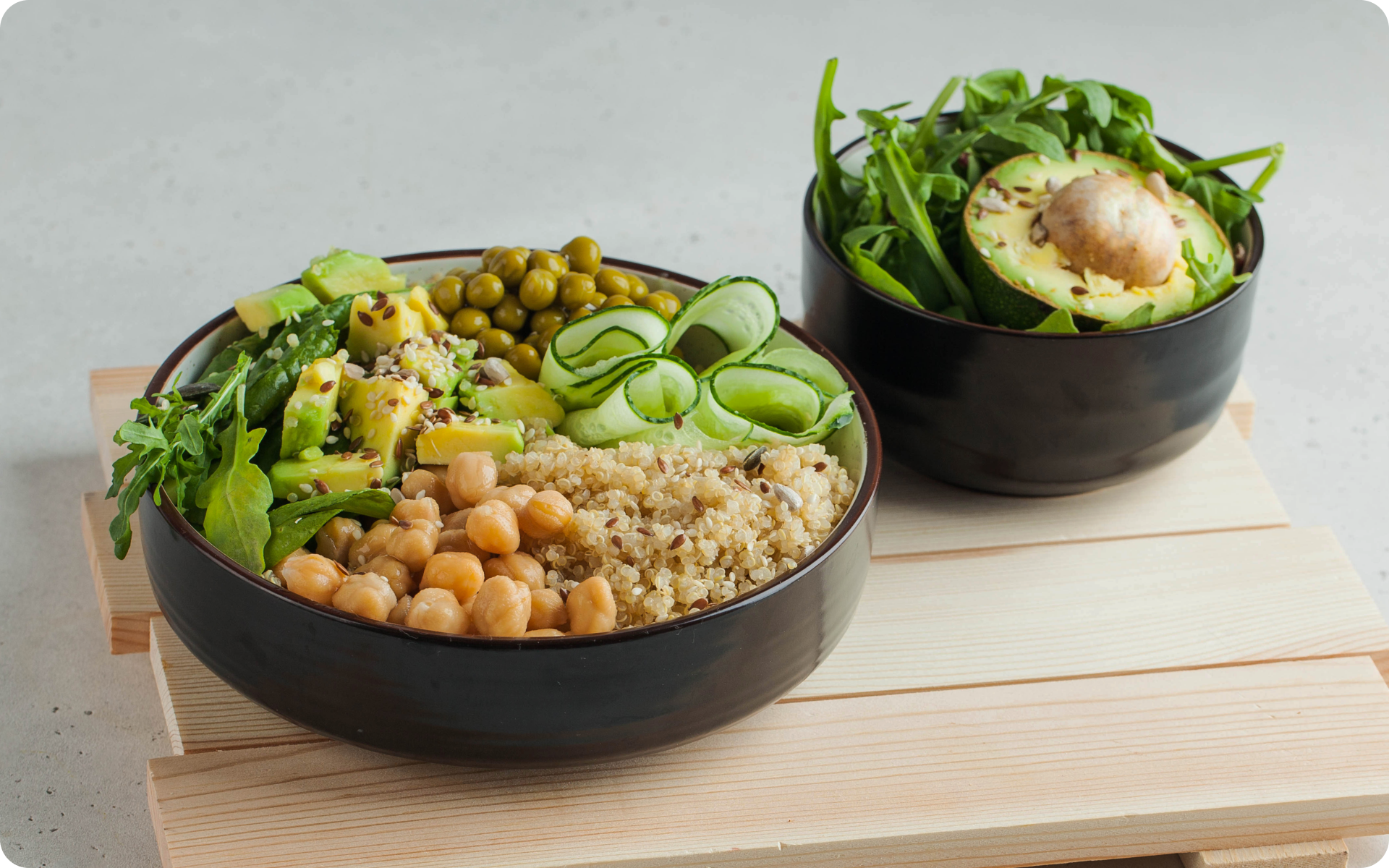If you’re passionate about bodybuilding or fitness, you’ve likely heard about bulking—a phase where the main goal is to gain muscle mass. Bulking is a crucial component in the muscle-building process.
By consuming more calories than you burn (calorie surplus), you provide your body with the necessary energy and nutrients to build new muscle tissue. However, not all calories are created equal. Understanding which high-calorie foods can support your bulking goals is the key to achieving the best results.
Here, we’re going to explore the world of high-calorie foods that are perfect for bulking. We’re also going to go over how to include them in your diet, and tips for maximizing your gains effectively.
High-Calorie Foods for Bulking
High-calorie foods are essential during the bulking phase as they provide the additional energy that’s required for muscle growth. When you’re bulking, your body’s caloric needs increase significantly (2).
Muscle building is a very expensive process. So, the body needs to know it has calories to “spare” in this process. That’s why creating a calorie surplus is essential.
These foods help you meet your calorie goals and supply the essential macronutrients (carbs, proteins, and fats) that support muscle repair and growth. Understanding how to balance these foods within your diet is essential for a successful bulk.
What Are the Best High-Calorie Foods for Bulking?
Carbohydrate-Rich Foods
Carbs play a crucial role in the bulking phase due to their function as the body’s primary energy source. When you increase your caloric intake, it’s important to include carbs as they provide the necessary energy for intense workouts and recovery.
In addition, consuming enough carbs helps replenish glycogen stores in muscles, which become depleted after strenuous exercise. This replenishment supports endurance during workouts and enhances muscle recovery post-exercise.
Carbs also have an important effect on insulin secretion, which is a hormone that plays a key role in muscle growth by facilitating nutrient uptake into muscle cells (1). This is why carbs are one of the best high-calorie healthy foods you can add if you’re looking to bulk.
Here are some high-calorie carb sources that are worth adding to your diet:
- Oats. They are packed with fiber, vitamins, and minerals. One cup of oats contains approximately 300 calories.
- Sweet potatoes. A nutrient-dense root vegetable that provides about 180 calories per large sweet potato.
- Brown rice. It offers sustained energy with around 200 calories per cooked cup.
If you’ve mustered up the courage to crush your weight loss goal, let BetterMe take the sting out of this demanding process. Our app will help you restructure your habits, remold your life and crank up your fitness results!
Protein-Rich Foods
Proteins play a crucial role in the bulking phase. They serve as the building blocks for muscle growth and repair.
When you engage in resistance training, your muscle fibers undergo stress and create tiny tears. Proteins, particularly those that are rich in essential amino acids, help with the recovery process by repairing this damage and facilitating muscle hypertrophy (muscle growth).
Including enough protein in your diet ensures that your body has the necessary components to support muscle synthesis, enhance recovery, and optimize performance.
In addition, protein has a high thermic effect, which means it requires more energy for digestion than fats and carbs, thereby assisting in overall caloric expenditure. As a result, it helps with gaining muscle mass and contributes to a more efficient metabolism during your bulking journey.
Here are some great protein-rich foods that are also high in calories you can include:
- Chicken breast. Lean and packed with protein. It provides around 165 calories per 3-ounce serving.
- Salmon. Not only is it rich in protein, it is also rich in healthy fats. It has approximately 200 calories per 3-ounce serving.
- Greek yogurt. It provides protein and probiotics (which is beneficial for gut health). One cup provides roughly 100 calories.
Fat-Rich Foods
Fats are essential for a successful bulking phase as they provide a dense source of calories that are necessary for meeting your increased energy requirements. They play a crucial role in hormone production, including testosterone, which is essential for muscle growth and overall performance (4).
In addition, healthy fats, such as omega-3 fatty acids, contribute to reducing inflammation, improving recovery, and supporting joint health during intense training sessions (5).
Including enough dietary fats in your regimen helps you achieve a caloric surplus while also helping with the absorption of fat-soluble vitamins (A, D, E, and K), which are important for several bodily functions.
Here are some great fat-rich foods you can include:
- Nuts and nut butter. Almonds, peanuts, and their butters can add a caloric punch with around 200 calories per serving (1 ounce).
- Avocado. It’s a great source of healthy fats and provides approximately 240 calories per avocado.
- Olive oil. A tablespoon of olive oil adds roughly 120 calories and is perfect to use for cooking and as a salad dressing.
Check out our other articles on the best Calorie-dense foods and best bulking foods for more options on foods that can add calories to your meals.
How Do I Eat More Calories when Bulking?
Including high-calorie foods in your diet doesn’t mean throwing balance out the window. Here are some tips to help you add more calories when bulking:
- Meal prep. Plan your meals in advance to include high-calorie, nutrient-dense foods.
- Snack wisely. Choose calorie-rich snacks such as nuts, seeds, and protein bars.
- Drink your calories. Smoothies and shakes can be a convenient way to boost your calorie intake.
Achieving a balanced diet while bulking means ensuring you get the right mix of macronutrients. This promotes muscle growth and supports overall health.
Read more: High Calorie Breakfast Ideas You Must Try for Muscle and Weight Gain
Nutrition Timing and Portion Control in Bulking
When bulking, the timing of your nutrition can significantly impact your results.
- Pre-workout nutrition. Consume a meal that’s rich in carbs and protein before your workout for energy and muscle preservation. If you’re eating 30 minutes before the workout, focus on food with a higher carb content.
- Post-workout nutrition. Focus on protein and carbs to help with muscle recovery and replenish glycogen stores.
- Consistent eating patterns. Eat at regular intervals to maintain a steady flow of nutrients to your muscles.
Portion control is equally important. Eating too much at once can lead to excessive fat gain. You should aim for frequent, smaller meals throughout the day. 
Top High-Calorie Bulking Meals
High-calorie meals can help you get all the calories you need. These meals are designed to provide the necessary calories and a blend of essential nutrients that support overall health and performance.
By including a variety of high-calorie ingredients, such as nuts, avocados, and whole grains, you can create satisfying meals that fuel the body effectively.
Here are some easy, bulking meals to help you reach your calorie intake:
1. Creamy Avocado Pasta
Ingredients
- 200 grams whole-wheat pasta
- 1 ripe avocado
- ¼ cup olive oil
- 2 cloves of garlic
- ¼ cup parmesan cheese
- Salt and pepper to taste
Nutritional breakdown
- Calories: 650
- Protein: 15 grams
- Carbs: 80 grams
- Fat: 30 grams
2. Nut Butter Banana Smoothie
Ingredients
- 1 large banana
- 2 tablespoons almond butter
- 1 cup whole milk
- 1 tablespoon honey
- 1/2 cup oats
Nutritional breakdown
- Calories: 500
- Protein: 12g
- Carbohydrates: 65g
- Fat: 20g
3. Beef and Quinoa Bowl
Ingredients
- 200g ground beef (80% lean)
- 1 cup cooked quinoa
- 1/2 avocado
- 1/2 cup black beans
- 1/4 cup shredded cheese
Nutritional breakdown
- Calories: 750
- Protein: 45g
- Carbohydrates: 50g
- Fat: 35g
4. Loaded Sweet Potato
Ingredients
- 1 large sweet potato
- 1/2 cup Greek yogurt
- 1/4 cup shredded cheddar cheese
- 1/4 cup bacon bits
- Chives for garnish
Nutritional breakdown
- Calories: 600
- Protein: 25g
- Carbohydrates: 60g
- Fat: 30g
These cheap bulking meals provide a boost in your calories and ensure you get a mix of essential nutrients to support your bulking goals. If you’re still unsure how many calories you should be eating based on your goals and needs, please consult a health professional.
Check out our article: Clean bulking meal plan.
How Long Does a Clean Bulk Take?
The duration of a clean bulk can vary based on individual goals and body types. Generally, a clean bulk lasts between 3 and 6 months. During this period, the focus is on gaining muscle with minimal fat gain by consuming nutrient-dense, high-calorie foods.
Monitoring progress and making adjustments to your calorie intake and workout routine are essential. You should aim for a gradual weight gain of approximately 0.5 to 1 pound per week to ensure you’re building muscle, not just adding fat.
BetterMe will keep you laser-focused on your weight loss journey! Nutrient-packed meal plans, fat-blasting workouts, galvanizing challenges and much more. Try using the app and see for yourself!
How to Gain 11 Pounds Weight in 1 Month
Gaining 11 pounds in a month is an aggressive goal, but it can be achieved with dedication. Here are some things you need to consider:
- Increase caloric intake. You’re going to need to consume an extra 500 to 1,000 calories per day (3).
- Focus on protein. Ensure you’re getting a protein source at each meal.
- Strength training. Engage in a rigorous strength training program to stimulate muscle growth.
- Rest and recovery. Allow your body adequate time to recover and build muscle.
Consistency is key. Stick to your plan and monitor your progress weekly. Adjust your diet and training as required.
Read more: Gain Weight – & Muscle – The Right Way With These High Calories Keto Foods
FAQs
Is pasta good for bulking?
Yes, pasta is a great option for bulking. It’s rich in carbs, which are essential for providing the energy needed for intense workouts and muscle recovery. In addition, pasta can be paired with protein-rich foods such as chicken, beef, or legumes to increase its nutritional value and support muscle growth.
Can you bulk in 7 days?
Bulking is typically a longer-term process aimed at gradually increasing muscle mass. While you can see some weight gain in 7 days, it’s more likely to be from water retention and glycogen storage rather than significant muscle growth. For sustainable and effective bulking, it’s recommended to follow a structured diet and exercise plan over several weeks or months.
Can you gain 1 kg of muscle in a week?
Gaining 1 kg (2.2 pounds) of pure muscle in a week is highly unlikely. Muscle growth is a gradual process that requires consistent resistance training, proper nutrition, and adequate rest. On average, beginners may gain 0.25 to 0.5 kg (0.5 to 1 lb) of muscle per month, while more experienced bodybuilders may gain even less than this. Aiming for sustainable progress is the key to long-term success.
Is a 2-month bulk okay?
Yes, a 2-month bulk can be effective, particularly if you’re new to bulking or want to make more noticeable gains in a relatively short period. During this time, you should focus on consuming high-calorie, nutrient-dense foods, maintaining a consistent workout routine, and getting enough rest. However, individual results can vary, so it’s important to track your progress and adjust your plan as needed.
The Bottom Line
Bulking is a vital phase for anyone who is looking to build muscle mass effectively. By including high-calorie foods that are rich in essential nutrients, you can fuel your workouts, promote muscle growth, and achieve your fitness goals. Remember, balance is crucial, and portion control, together with proper nutrition timing, can make a significant difference to your results.
To get started on your bulking journey, you should focus on creating a well-rounded diet plan that includes a variety of high-calorie foods. Monitor your progress, stay consistent, and adjust as necessary to ensure you stay on the right path.
For personalized guidance and meal plans, consider consulting a health professional.
DISCLAIMER:
This article is intended for general informational purposes only and does not serve to address individual circumstances. It is not a substitute for professional advice or help and should not be relied on for making any kind of decision-making. Any action taken as a direct or indirect result of the information in this article is entirely at your own risk and is your sole responsibility.
BetterMe, its content staff, and its medical advisors accept no responsibility for inaccuracies, errors, misstatements, inconsistencies, or omissions and specifically disclaim any liability, loss or risk, personal, professional or otherwise, which may be incurred as a consequence, directly or indirectly, of the use and/or application of any content.
You should always seek the advice of your physician or other qualified health provider with any questions you may have regarding a medical condition or your specific situation. Never disregard professional medical advice or delay seeking it because of BetterMe content. If you suspect or think you may have a medical emergency, call your doctor.
SOURCES
- Effect of insulin on human skeletal muscle protein synthesis is modulated by insulin-induced changes in muscle blood flow and amino acid availability. (pubmed, 2006)
- Effect of Small and Large Energy Surpluses on Strength, Muscle, and Skinfold Thickness in Resistance-Trained Individuals: A Parallel Groups Design. (pubmed, 2023)
- Is an Energy Surplus Required to Maximize Skeletal Muscle Hypertrophy Associated With Resistance Training. (pubmed, 2019)
- Low-fat diets and testosterone in men: Systematic review and meta-analysis of intervention studies. (pubmed, 2021)
- Omega-3 Fatty Acids And Inflammation – You Are What You Eat! (pubmed, 2021)



